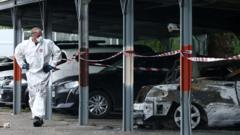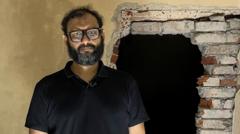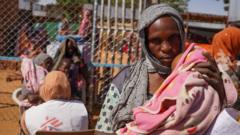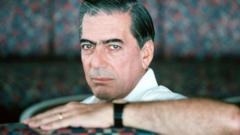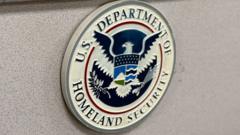In the aftermath of decades of oppression under the Assad regime, Syrians flock to Mustahed Hospital in Damascus, driven by the desperate need to uncover the fate of missing relatives. As they mourn, medical professionals uncover grim realities of torture and death, while the desire for justice and a fearless future persists amidst uncertainty.
The Journey for Closure in a Post-Assad Syria
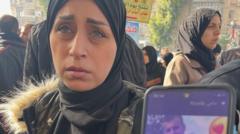
The Journey for Closure in a Post-Assad Syria
With the fall of Assad's regime, families of victims search for answers and the lost remains of their loved ones amid renewed hopes for healing.
After more than five decades of systemic cruelty under the Assad regime, Syrian families are embarking on a harrowing quest for closure, desperately seeking the bodies of loved ones who vanished without a trace. At Mustahed Hospital in Damascus, an unsettling display of images serves as a somber reminder of the human cost of tyranny; photographs of the deceased, primarily prisoners, line the wall, each face telling a story of pain and loss.
Families gather, squinting in the dim winter light, searching for a shred of recognition amongst the grim visages—some deteriorated beyond immediate identification. The hospital received a chilling influx of 35 bodies, overwhelming its morgue, where families hope to find the remains of those who disappeared after being apprehended at checkpoints or during raids by regime forces.
Amid the emotional tableau, Forensic Dentist Dr. Raghad Attar painstakingly works to match dental records of the lost individuals with the corpses, providing a semblance of hope for the families. Despite her professional poise, she succumbs to tears while reflecting on the prolonged trauma faced by Syrians, pleading for international assistance to ease their suffering.
One grieving woman named Noor explained how receipts from a Facebook message offered the only clue about her brother’s fate, last reported to be in the infamous Sednaya prison. Desperation mingles with fragile hope as families discover the cruel truth: their loved ones suffered under horrendous conditions, with bodies showing signs of severe torture including emaciation and multiple fractures.
As more stories emerge, it's evident that after decades of violence instilled by the Assads, the quest for identification is intertwined with the yearning for justice. Revelations of the brutal reality of life under the regime compel many to hold onto memories of their lost family members, seeking finality on a painful chapter of their lives.
Meanwhile, in a different area of Damascus, a crowd gathers rumoring the impending execution of a military officer implicated in heinous acts during the regime's tyranny. Emotions run high as people express their desire for revenge, highlighting the delicate balance that Syria's new leaders must navigate to avoid resurrecting cycles of violence.
With the oppressive grip of dictatorship relinquished, the country stands on a precipice. The ability of its new rulers to manage the thirst for retribution and foster reconciliation will play a crucial role in shaping a future free from fear. Amidst the agony of searching for the deceased, there lingers a persistent hope for healing and the dream of rebuilding Syria from the ashes of its past with compassion and dignity.




